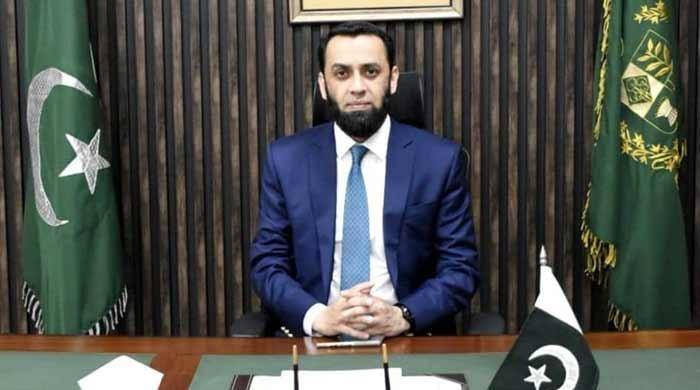- Islamabad says Kabul talks version ‘false and misleading’
- Pakistan calls for action against terrorists sheltering in Afghanistan
- The Afghan Taliban say the expulsion offer was rejected by Islamabad.
ISLAMABAD: Amid a fragile ceasefire between Islamabad and Kabul, Pakistan on Saturday rejected the “deliberate distortion of facts” attributed to Afghan Taliban spokesperson Zabihullah Mujahid regarding the recent Istanbul talks between the two countries.
In a statement published on
“When the Afghan side claimed that these individuals were Pakistani nationals, Islamabad immediately proposed that they be handed over through designated border crossings, in line with its long-standing position,” he added.
“Any statement to the contrary is false and misleading,” the statement added.
The clarification came after Zabihullah Mujahid told a private news channel that during the Istanbul negotiations, the Afghan side had offered to expel people considered security threats by Islamabad – a proposal that Pakistan reportedly refused.
He alleged that Pakistan had instead asked Afghanistan to retain these individuals on Afghan territory rather than deport them.
Mujahid further claimed that Afghan policy prohibits migrants from carrying weapons and said Kabul would act if Pakistan provided credible evidence of a threat.
He also claimed that Pakistan’s recent actions appeared aimed at creating conditions for a possible US return to Bagram Air Base.
Pakistan and the Afghan Taliban regime have agreed to maintain the ceasefire after several rounds of negotiations in Istanbul failed without any decisive breakthrough.
The talks broke down when the Taliban refused to provide verifiable guarantees that groups such as the TTP would not use Afghan territory to launch attacks against Pakistan.
Pakistan has resumed negotiations at the request of Turkish and Qatari mediators to give peace another chance, while repeatedly urging Kabul to act against militants using its territory as a safe haven.
Islamabad-Kabul tensions
Pakistan has been grappling with an increase in terrorist incidents, particularly in Khyber Pakhtunkhwa (KP) and Balochistan, since the Afghan Taliban regime took power in 2021.
The government in Islamabad has repeatedly urged the Taliban regime to rein in terrorist groups responsible for countless attacks in Pakistan.
However, the Taliban regime has remained largely indifferent to Pakistan’s demands and has provided sanctuary to multiple terrorist groups targeting security forces and civilians.
Instead of addressing Pakistan’s concerns about cross-border terrorism, the Taliban regime resorted to unprovoked firing along the border on October 12.
Pakistani armed forces responded quickly, killing more than 200 Taliban fighters and affiliated militants; however, as many as 23 Pakistani soldiers were martyred in the border clashes.
Security forces also carried out strikes in Afghanistan, including in Kabul, destroying terrorist hideouts in the country.
Hostilities between the forces of the two countries ceased after Pakistan accepted the Taliban regime’s request for a temporary ceasefire on October 17.
Delegations from the two countries then met for Qatar-mediated talks in Doha, where they agreed to a ceasefire agreement.
Turkey then hosted the second round of negotiations in Istanbul, which began on October 25 and continued until October 31.
The two parties will meet again in the next round scheduled for November 6.




